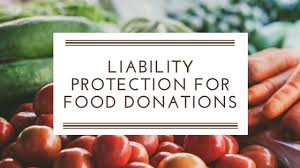The Bill Emerson Good Samaritan Food Donation Act
The Bill Emerson Good Samaritan Food Donation Act
What is the Bill Emerson Good Samaritan Food Donation Act?
The Bill Emerson Good Samaritan Food Donation Act is a federal law designed to encourage the donation of food and grocery products to nonprofit organizations by limiting the legal liability of donors. The Act is named after its sponsor, Bill Emerson, a former member of the U.S. House of Representatives from Missouri. President Bill Clinton signed the Act into law in 1996.
To whom does the Act apply?
The Act applies to a person or entity that donates food or grocery products in good faith to a nonprofit organization for distribution to needy individuals.
How does the Act limit the liability of donors?
The Act provides that a donor is not subject to civil or criminal liability arising from the donated food or grocery product in the absence of gross negligence or intentional misconduct. For example, a donor gives a box of cereal to a nonprofit food bank. The food bank gives the cereal to a needy recipient. The recipient becomes ill as a result of eating the cereal. Under the Act, the donor will not be legally liable for the recipient’s illness unless the donor is guilty of gross negligence or intentional misconduct in connection with the donation of the cereal.
Gross negligence means voluntary and conscious conduct (including failure to act) by any person who, at the time of the conduct, knew that the conduct was likely to be harmful to the health or well-being of another person. Under the Act, the donation of food that is close to the date of recommended retail sale is, in and of itself, not grounds for finding gross negligence. For example, if the donor gave the cereal to the food bank in August of 2004, and the expiration date on the box was September 2004, the donor is not guilty of gross negligence.
Intentional misconduct means conduct by a person with knowledge (at the time of the conduct) that the conduct is harmful to the health or well-being of another person. If the donor knew that the cereal was tainted with poison when he gave it to the food bank, then the donor is guilty of intentional misconduct and will be liable for the recipient’s illness.
Does the Act preempt state law?
The Act sets a minimum level of protection for donors of food and grocery products to nonprofit organizations. Therefore, if a state law offers less protection to donors, then the Act is controlling. If a state law affords a higher level of protection to donors, then the state law is valid.



